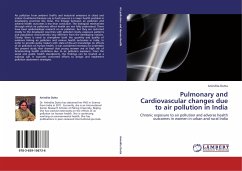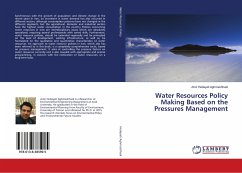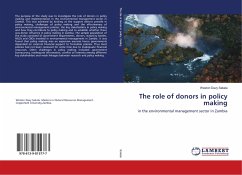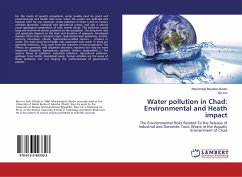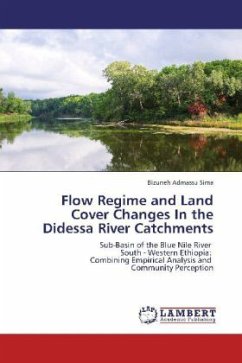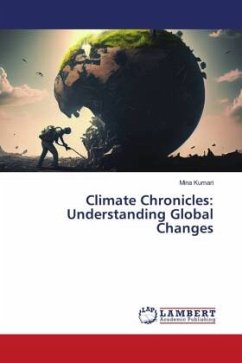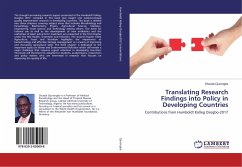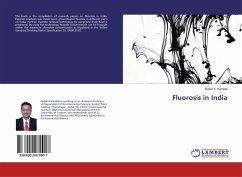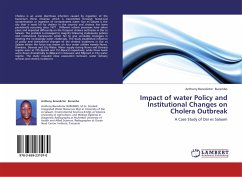
Impact of water Policy and Institutional Changes on Cholera Outbreak
A Case Study of Dar es Salaam
Versandkostenfrei!
Versandfertig in 6-10 Tagen
32,99 €
inkl. MwSt.

PAYBACK Punkte
16 °P sammeln!
Cholera is an acute diarrhoea infection caused by ingestion of the bacterium Vibrio cholerae which is transmitted through feacal-oral contamination or ingestion of contaminated water. Dar es Salaam is the city that is most hit by cholera in the country and cholera has been persistently occurring since 1977 . Different reform processes have taken place and impacted differently on the frequent cholera outbreaks in Dar es Salaam. The problem is envisaged to magnify following inadequate policies and institutional frameworks which fail to give workable strategies in meeting the increasingly water c...
Cholera is an acute diarrhoea infection caused by ingestion of the bacterium Vibrio cholerae which is transmitted through feacal-oral contamination or ingestion of contaminated water. Dar es Salaam is the city that is most hit by cholera in the country and cholera has been persistently occurring since 1977 . Different reform processes have taken place and impacted differently on the frequent cholera outbreaks in Dar es Salaam. The problem is envisaged to magnify following inadequate policies and institutional frameworks which fail to give workable strategies in meeting the increasingly water challenges. The study established influence of policy and institutional changes to the cholera incidences in Dar es Salaam where the focus was drawn on four water utilities namely Nuwa, Dawasco, Dawasa and City Water. Water supply during Nuwa and Dawasa regime were at 155.3lpca/d and 151.0lpca/d respectively, while these levels went down dramatically to 80lpca/d in Dawasco and 69lpca/d in City water regime. The study revealed close association between water delivery services and cholera incidences.



